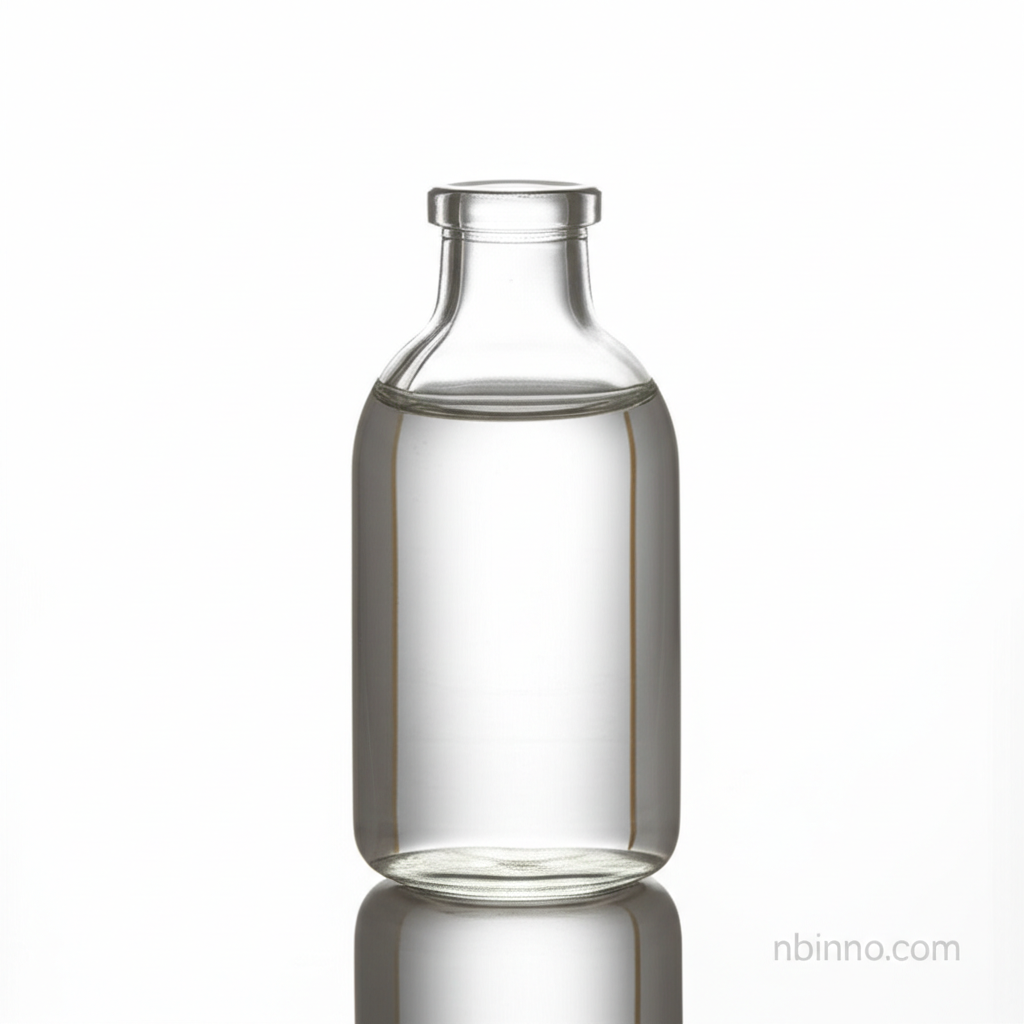Propionic Acid: The Versatile Preservative and Chemical Building Block
Discover the essential role of propionic acid in food preservation and chemical synthesis.
Get a Quote & SampleProduct Core Value

Propionic Acid
Propionic acid is a vital organic acid widely recognized for its efficacy as a preservative in both food and animal feed. By effectively inhibiting the growth of mold and bacteria, it significantly extends the shelf life of various products, ensuring quality and safety. Beyond its preservative capabilities, it acts as a crucial chemical intermediate, facilitating the synthesis of diverse compounds and materials essential across multiple industries.
- Harnessing propionic acid's power as a food preservative can significantly reduce spoilage in baked goods and other food items.
- Explore the diverse chemical intermediate uses of propionic acid in manufacturing polymers, pesticides, and pharmaceuticals.
- Learn about the key properties of propionic acid, including its physical state and solubility, crucial for industrial applications.
- Understand the various applications of propionic acid, from its role as a mold inhibitor in animal feed to its use in flavorings.
Key Advantages
Enhanced Food Safety and Shelf-Life
Propionic acid serves as a highly effective food preservative, combating mold and bacterial contamination, thereby ensuring that products remain safe and appealing for longer periods. This preservative function is critical for maintaining product integrity and consumer trust, making it a staple in the food industry. The utilization of propionic acid as a mold inhibitor in animal feed also contributes to livestock health and feed quality.
Versatile Chemical Intermediate
As a fundamental chemical intermediate, propionic acid is instrumental in the synthesis of a wide array of valuable compounds, including esters, salts, and other derivatives. Its role in producing polymers, such as cellulose-acetate-propionate, and its utility in the synthesis of pesticides and pharmaceuticals underscore its importance in industrial chemical manufacturing.
Cost-Effective Production and Use
With established chemical and biotechnological production methods, propionic acid is manufactured efficiently, making it an economically viable option for large-scale industrial use. Its competitive pricing and broad applicability as a preservative and chemical building block offer significant value to manufacturers across various sectors.
Key Applications
Food Preservation
Propionic acid and its salts, like calcium propionate, are widely used to prevent mold and bacterial growth in baked goods, dairy products, and processed meats, extending their shelf life and maintaining quality. This preservative function is essential for the food industry's ability to deliver safe and stable products.
Animal Feed
A significant portion of propionic acid production is dedicated to its use as a preservative in animal feed, where it inhibits the growth of molds and bacteria, ensuring the nutritional integrity and safety of feedstuffs for livestock.
Chemical Synthesis
Propionic acid is a key intermediate in the production of various chemicals, including cellulose-acetate-propionate, vinyl propionate, pesticides, and pharmaceuticals, demonstrating its broad utility in chemical manufacturing processes.
Flavorings and Fragrances
Esters derived from propionic acid often possess fruit-like odors and are utilized as artificial flavorings and in the fragrance industry, adding to the diverse applications of this versatile compound.
